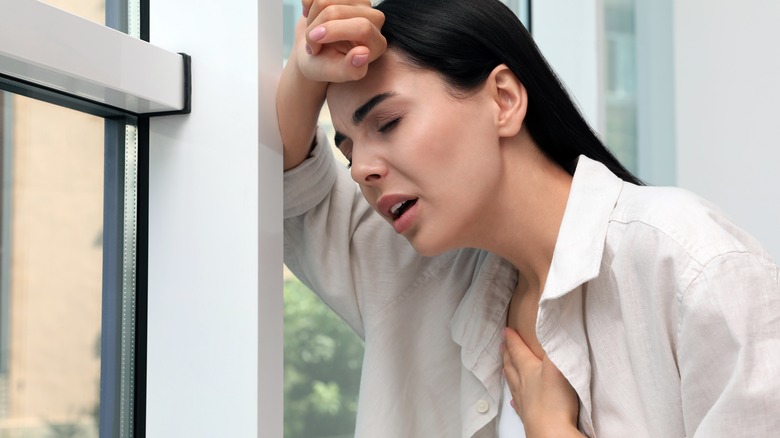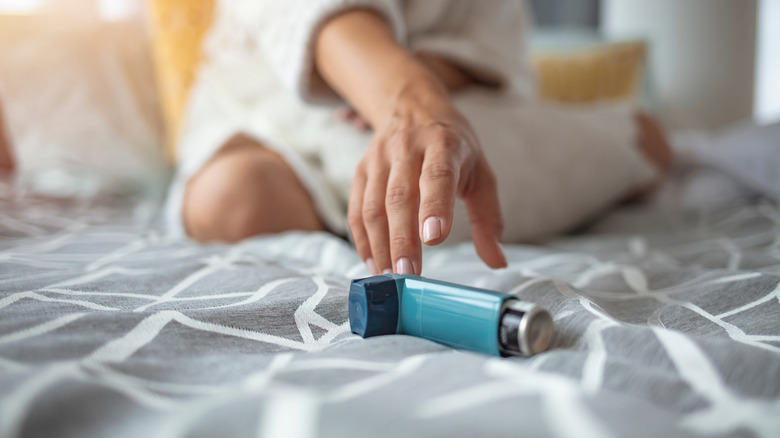What Does It Feel Like When You Have An Asthma Attack?
An asthma attack can be a very frightening and uncomfortable experience. Asthma is a medical condition where your airways constrict and produce additional mucus, according to Mayo Clinic. The mucus can make breathing difficult and make the person have a coughing fit or experience wheezing. For some, the condition doesn't bother them too much. On the other hand, others find it interferes with daily life.
The condition can't be cured. Thankfully though, there are fast relief and long-term asthma medications that can help those suffering from asthma. Inhalers, for one, can serve as a quick solution and lifelong control for asthma, according to the American College of Allergy, Asthma & Immunology (ACAAI). In addition, you can prevent an asthma attack by avoiding triggers that may cause it, such as keeping pets off furniture, and living in an area with low outdoor air pollution, explains the EPA. But if an asthma attack does occur, what does it feel like?
Asthma attacks are caused by narrow airways
Approximately 1 in 13 people in the United States have asthma (per the Asthma and Allergy Foundation of America). However, no one actually knows the specific cause of asthma, according to WebMD. Researchers do know that asthma is an inflammatory disease that causes the airways to narrow when exposed to a trigger. More triggers can include tobacco smoke, dust mites, pests, mold, and even some food, explains the Centers for Disease Control and Prevention (CDC).
During an asthma attack, the airways begin to narrow, which then results in spasming of the muscles around the airway, explains WebMD. This can cause numerous symptoms of an asthma attack that include rapid breathing, chest tightness, pale and sweaty face, and trouble talking, among others. Essentially, an asthma attack feels like you are having an extremely hard time breathing, potentially reminiscent of an anxiety or panic attack. To stop an asthma attack, sit up straight and take one puff of a rescue inhaler every 30 to 60 seconds (per Medical News Today). If symptoms don't improve after 10 puffs, seek emergency help.


